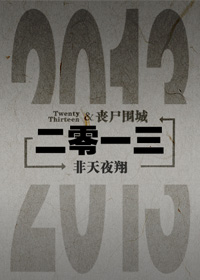一千零一夜-天方夜谭-1001 Nights(英文版)-第51部分
按键盘上方向键 ← 或 → 可快速上下翻页,按键盘上的 Enter 键可回到本书目录页,按键盘上方向键 ↑ 可回到本页顶部!
————未阅读完?加入书签已便下次继续阅读!
and flatter him with false counsel; he assumes the responsibility of this and bees an enemy to the people。 What sayst thou of this?' (A。) 'What thou sayst; O vizier; of his responsibility and sin; arises only in the case of his abetting the king in his wrongdoing; but it behoves the vizier; when the king takes counsel with him of the like of this; to show forth to him the against tyranny and oppression and expound to him the principles of good government; alluring him with the reward that pertains to this and restraining him with warning of the punishment that he incurs 'in following his perverse inclinations'。 If the king incline to his words; his end is gained; and if not; there is nothing for it but that he depart from him on courteous wise; for that in separation is ease for each of them。' (Q。) 'What are the duties of the king to his subjects and of the latter to the king?' (A。) 'They shall do what he orders them with a pure intent and obey him in that which pleases him and pleases God and His apostle。 It is the king's duty to protect their possessions and guard their women; even as it is their duty to hearken unto him and obey him and expend their lives freely in his defence and give him his lawful due and praise him duly for that which he bestoweth upon them of his justice and beneficence。' (Q。) 'Have his subjects any claim upon the king other than that which thou hast said?' (A。) 'Yes: the king's duty to his subjects is more imperative than their duty to him; for that the breach of his duty towards them is more harmful than that of theirs towards him; because the will of the king and the loss of his kingdom and fortune betide not but by the breach of his duty to his subjects: wherefore it behoves him who is invested with the kingship to be assiduous in ensuing three things; to wit; the furtherance of the faith; the welfare of his subjects and the due administration of government; for by the assiduous observance of these three things; his kingdom shall endure。' (Q。) 'How doth it behove him to do for his subjects' weal?' (A。) 'By giving them their due and maintaining their laws and usages and employing wise and learned men to teach them and justifying them; one of the other; and sparing their blood and defending their goods and lightening their burdens and strengthening their armies。' (Q。) 'What is the king's duty to his vizier?' (A。) 'None hath a more imperative claim on the king than the vizier; for three reasons: firstly; because of that which betides him with him; in case of error in judgment; and because of the mon profit to king and people in case of sound judgment: secondly; that the folk may know the goodliness of the rank which the vizier holds in the king's estimation and so look on him with eyes of veneration and respect and submission; and thirdly; that the vizier; seeing this from king and people; may ward off from them that which they mislike and fulfil to them that which they love。' (Q。) 'I have heard all thou hast said of the attributes of king and vizier and people and approve thereof: but now tell me what is incumbent in the matter of keeping the tongue from lying and folly and slander and excess in speech。' (A。) 'It behoves a man to speak nought but good and kindness and to talk not of that which concerns him not; to leave detraction nor carry talk he hath heard from one man to his enemy; neither seek to harm his friend nor his enemy with his sultan and reck not of any; neither of him from whom he hopes for good nor of him whose mischief he fears; save of God the Most High; for; in truth; He is the 'only' one who liveth or profiteth。 Let him not impute default unto any nor talk ignorantly; lest he incur the burden and the sin thereof before God and earn hatred among men; for know that speech is like an arrow; which; once discharged; none can avail to recall。 Moreover; let him beware of confiding his secret to one who shall discover it; lest he fall into mischief by reason of its disclosure; after having relied upon its concealment; and let him be more careful to keep his secret from his friend than from his enemy; for the keeping a secret with all folk is of the performance of trust。' (Q。) 'Tell me how a man should bear himself with his family and friends。' (A。) 'There is no ease for a son of Adam save in good conduct; he should render to his family that which they deserve and to his brethren that which is their due。' (Q。) 'What should one render to one's kinsfolk?' (A。) 'To one's parents; submission and soft speech and affability and honour and reverence。 To one's brethren; loyal counsel and readiness to expend one's good for them and assistance in their undertakings and grieving for their grief and joyance in their joy and closing of the eyes toward the errors that they may mit; for; when they experience this from a man; they requite him with the best they can mand of good counsel and expend their lives in his defence; so; if thou know thy brother to be trusty; be lavish to him of thy love and helpful to him in all his affairs。' (Q。) 'I see that brethren are of two kinds; brethren of trust (159) and brethren of society。 (160) As for the first; there is due to them that which thou hast set forth; but now tell me of the other。' (A。) 'As for brethren of society; thou gettest of them clearance and goodly usance and fair speech and pany; so be thou not sparing to them of thy delights; but be lavish to them; like as they are lavish thereof to thee; and render to them that which they render to thee of affability and an open favour and sweet speech; so shall thy life be pleasant and thy speech have acceptance e now of the provision decreed by the Creator to all creatures。 Hath He allotted to men and beasts each his several provision; to the pletion of his appointed term; and if this be so; what maketh him who seeketh his livelihood to incur hardship and toil in the quest of that which he knows he cannot fail of obtaining; if it be decreed to him; though he incur not the misery of endeavour; whilst; if it be not decreed to him; he shall not win thereto; though he strive after it with his utmost endeavour? Shall he therefore leave striving and put his trust in his Lord and rest his body and his soul?' (A。) 'Indeed; we see that to each there is a provision allotted and a term prescribed; but to each provision is a way and means; and he who seeketh would get ease of his seeking by leaving to seek; et needs must he seek his fortune。 Moreover; the seeker is in two cases; either he gains his fortune or fails thereof。 In the first case; his pleasure consists; first in the having gained his fortune; and secondly; in the satisfactory (161) issue of his quest; and in the other case; his pleasure consists; first; in his readiness to seek his living; secondly; in his abstaining from being a burden to the folk; and thirdly; in his freedom from liability to reproach。' (Q。) 'What sayst thou of the means of seeking one's fortune?' (A。) 'A man shall hold lawful that which God (to whom belong might and majesty) permitteth and unlawful that which He forbiddeth。'
With this the discourse between them came to an end and Shimas and all the learned men; who were present; rose and prostrating themselves before the prince; magnified and extolled him; whilst his father pressed him to his bosom and seating him on the throne of kingship; said; 'Praised be God who hath blessed me with a son to be the solace of mine eyes in my lifetime!' Then said the prince to Shimas; 'O sage that art versed in metaphysical questions; albeit God hath vouchsafed me but little knowledge; yet do I apprehend thine intent in accepting from me what I proffered in answer concerning that whereof thou hast asked me; whether I hit or missed the mark therein; and belike thou favest my errors; but now I wish to question thee of a thing; whereof my judgment fails and whereto my capacity is unequal and which my tongue availeth not to set forth; for that it is obscure to me; with the obscurity of limpid water in a black vessel; wherefore I would have thee expound it to me; so no whit thereof may remain doubtful to the like of me; to whom its obscurity may present itself in the future; even as it hath presented itself to me in the past; since God; even as He hath made life to





